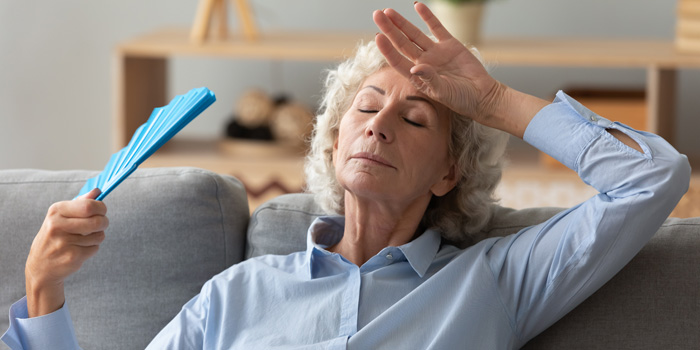As the summer months approach, it is important to consider the safety of your older loved ones who may be more vulnerable to the effects of extreme heat. With rising temperatures and increased humidity, seniors are at risk of heat exhaustion, dehydration, and other heat-related illnesses.
Summer temperatures and humidity levels are nothing to treat lightly. It is especially important to do everything that that can be done to avoid health ramifications from overheating. It is vital that your elderly family member stays cognizant of signs that the heat might be getting to him or her. Heavy sweating, weakness, dizziness, nausea, and headaches can be early signs of heat stroke… If he or she is living alone, set up an alert system to get help quickly.
In the way of prevention, it is important to ensure that the senior has access to a cool and comfortable environment. Most houses have one or two rooms that are cooler than the others. This is often a function of how the house is situated relative to the sun and natural shading from trees. Encourage your elderly family member to spend most of his or her time in the cooler rooms of the house and to keep blinds closed. This allows for a cooler environment without relying on air conditioning as much.
In a situation where the house does not have air conditioning at all and window units cannot be added for some reason, or the house cannot otherwise be sufficiently cooled, one option is to take the senior to air-conditioned public spaces like libraries, community centers, or shopping malls in the hottest times of the day.
It is also important to encourage the elderly person to stay hydrated by drinking plenty of fluids throughout the day. This can include water, fruit juices, and sports drinks, but it is important to avoid drinks that contain caffeine or alcohol as they can actually increase dehydration.
Consuming hydrating foods is also beneficial because they add to the water your senior is getting and they are also cooling to eat. Foods like berries and melons are high in water content. Cold soups, gelatin, and popsicles can also be good choices. If your loved one just cannot give up the coffee, get an agreement to drink a cup of water for every cup of coffee. That can help to mitigate the dehydrating impact that caffeine might have.
In addition to staying hydrated, it is important for seniors to avoid strenuous activity during the hottest parts of the day. This may mean scheduling outdoor activities for the early morning or late evening, when temperatures are cooler, or by moving exercise routines indoors.
If your senior does spend time outdoors, encourage him or her to wear lightweight, light-colored clothing and a hat to protect against the sun’s rays.
Another important consideration for keeping an elderly person safe in the summer heat is medication management. Some medications can increase the risk of dehydration or heat-related illness, so it is important to talk to your senior’s healthcare provider about any medications they are taking and how they may be affected by the heat.
For seniors who live alone, it is important to check in on them regularly to ensure that they are staying safe from the heat. This may mean calling or visiting them daily to make sure they are staying cool and hydrated or arranging for a caregiver to check in on them regularly.
It may also be helpful to provide the senior with a personal emergency response system (PERS) that they can use to call for help in case of an emergency.
Finally, it is important to plan ahead for extreme weather events like heat waves. This may mean having a plan in place for evacuating or relocating the senior in case of a power outage or other emergency and stocking up on emergency supplies like water, non-perishable food, and medication.
Keeping an elderly person safe in the summer heat requires careful planning and attention to detail. By ensuring that the senior has access to a cool and comfortable environment, staying hydrated, avoiding strenuous activity during the hottest parts of the day, monitoring medication use, and checking in regularly, you can help keep your senior healthy in the heat.

